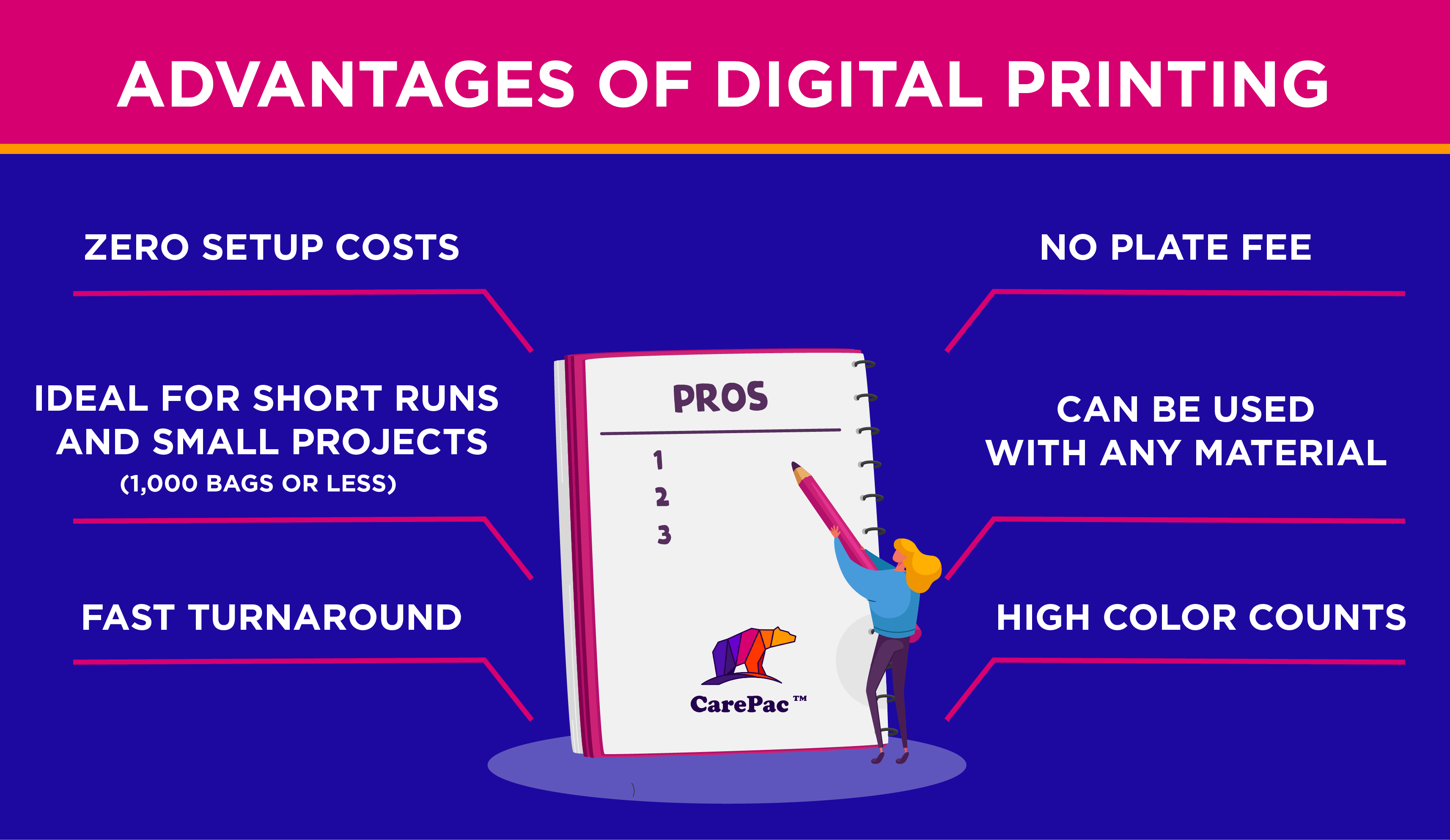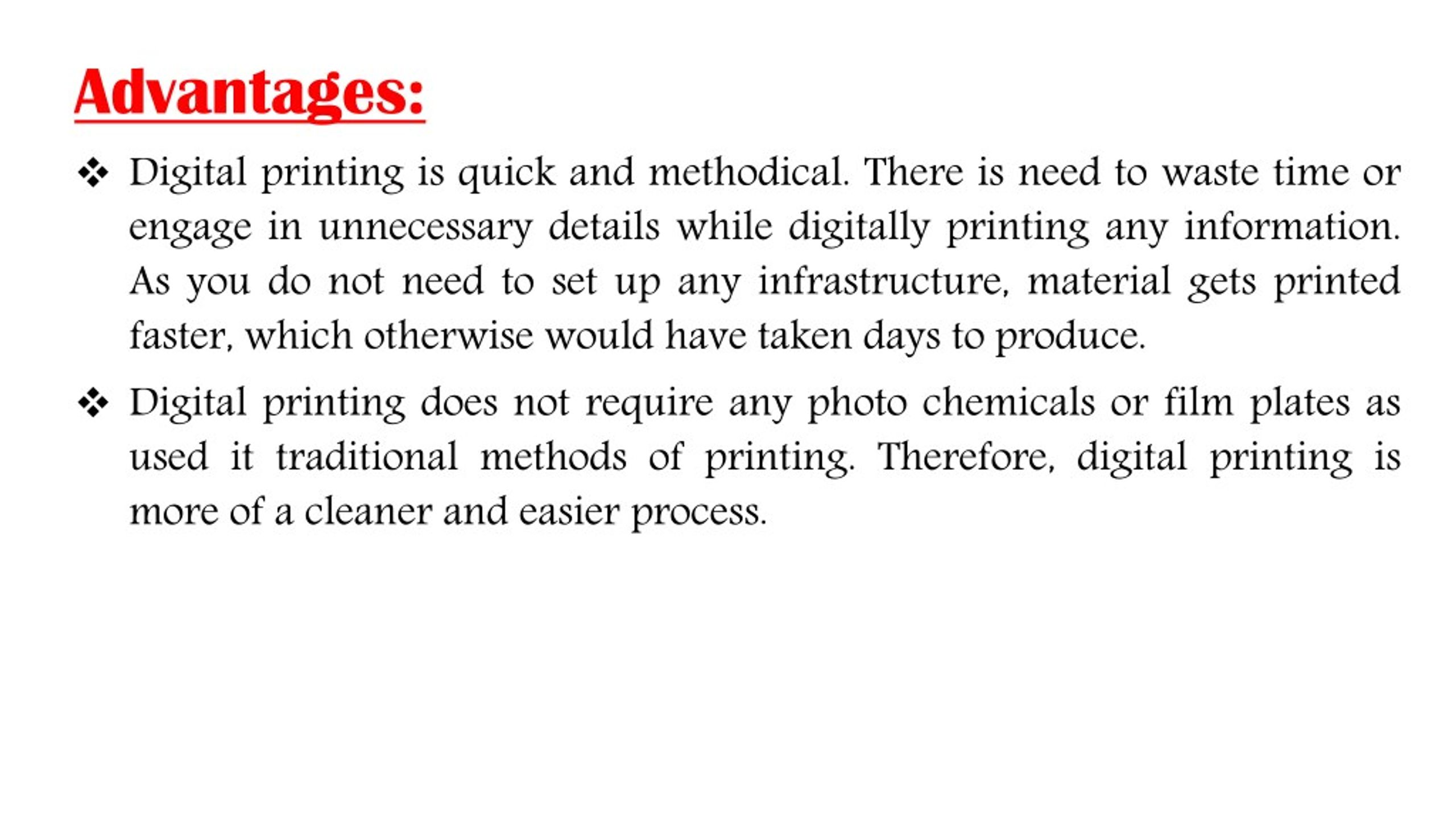Digital Printing for Dummies
Digital Printing for Dummies
Blog Article
The Single Strategy To Use For Digital Printing
Table of ContentsLittle Known Questions About Digital Printing.The 6-Second Trick For Digital PrintingThe Facts About Digital Printing UncoveredMore About Digital PrintingGet This Report about Digital PrintingA Biased View of Digital Printing
Variable information printing, such as direct mail with personalized codes and addresses, is ideally fit for digital printing. Digital fast printing only needs 4 steps of style, evaluation, printing and binding to obtain everything done. Digital quick printing has an unrivaled advantage: print on need.According to PMMI, electronic printing enables brands and producers to react promptly to customer needs while enhancing the supply chain, decreasing warehousing price and waste, and taking pleasure in faster time to market. That all audios terrific, but exactly how does this innovation do all that? The significant differentiator of these technologies is that there are no set up fees and no plates with electronic printing.
The 5-Minute Rule for Digital Printing
According to Wikipedia, the best difference in between digital printing and traditional approaches such as lithography, flexography, gravure, or letterpress - Digital Printing is that there is no requirement to change printing plates in digital printing, whereas in these analog printing approaches the plates are repeatedly replaced. This leads to quicker turn-around time and lowers expense when utilizing electronic printing.
Digital printing is very versatile, so it's easy to make modifications to the package style swiftly. It all goes back to the plates.
Much more inventory can indicate more waste later on. With standard printing approaches, short-run printing is just not feasible. Since a terrific layout can make or break your item, digital printing continually creates high-grade, clear and vivid graphics each time. Digital printing on versatile bags includes the bright, lively, and exact graphics that practically beckon consumers to reach out and touch them.
Digital printing is the procedure of printing digital-based pictures straight onto a variety of media substratums. There is no requirement for a printing plate, unlike with countered printing. Digital data such as PDFs or desktop posting documents can be sent directly to the digital printing machine to print on paper, photo paper, canvas, fabric, synthetics, cardstock and various other substrates.
The Best Strategy To Use For Digital Printing
According to PMMI, electronic printing permits brands and manufacturers to respond promptly to customer demands while improving the supply chain, minimizing warehousing expense and waste, and appreciating faster time to market. That all audios excellent, but how does this technology do all that? The significant differentiator of these technologies is that there are no set up fees and no plates with digital printing.
According to Wikipedia, the best distinction between electronic printing and typical techniques such as lithography, flexography, gravure, or letterpress is that there is no demand to replace printing plates in electronic printing, whereas in these analog printing approaches the plates are repeatedly replaced. This results in quicker turnaround time and lowers cost when using electronic printing.

The Best Strategy To Use For Digital Printing
Much more inventory find more information can indicate more waste in the future. With traditional printing techniques, short-run printing is simply not possible. Due to the fact that a terrific layout can make or damage your item, electronic printing continually develops top quality, clear and vibrant graphics each time. Digital printing on versatile pouches includes the intense, vibrant, and precise graphics that almost beckon customers to get to out and touch them.

According to PMMI, digital printing permits brands and suppliers to react quickly to customer needs while boosting the supply chain, decreasing warehousing cost and waste, and enjoying faster time to market. That all audios fantastic, but how does this modern technology do all that? The significant differentiator of these modern technologies is that there are no set up fees and no plates with electronic printing.
More About Digital Printing
According to Wikipedia, the greatest difference in between electronic printing and traditional techniques such as lithography, flexography, gravure, or letterpress is that there is no demand to change printing plates in electronic printing, whereas in these analog printing methods his response the plates are consistently replaced. This leads to quicker turnaround time and reduces cost when utilizing digital printing.
Digital printing is very adaptable, so it's very easy to make changes to the plan layout promptly. It all goes back to the plates.

Digital Printing Things To Know Before You Get This
Digital printing is the process of printing digital-based photos straight onto a range of media substratums. There is no demand for a printing plate, unlike with offset printing. Digital data such as PDFs or desktop posting data can be sent out directly to the electronic printing press to print theoretically, photo paper, canvas, fabric, synthetics, cardstock and other substratums.
Report this page